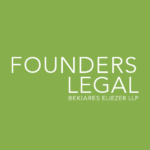Understanding The Paycheck Protection Program and Business Eligibility
With so many companies’ runways depleting in these unprecedented times, many companies are seeking relief through the Coronavirus Aid, Relief, and Economic Security Act (the “CARES Act”). One attractive program falling within the U.S. Small Business Administration’s (SBA’s) Section 7(a) loan program is called the Paycheck Protection Program (the “PPP”), where a business can receive a forgivable loan in amount up to 2.5 X its average monthly payroll for the prior year.
To be eligible for an SBA loan a business must meet the size
qualifications for a “small business concern”, or
alternatively, in the case of PPP, employ fewer than 500 employees. A
businesses qualification as a “small business concern”, however, can be
frustrated by a business’s association with other companies or investors as
provided under 13 CFR §121.301.
These
affiliation rules consider the amount of control or power a third party has to
control the applicant. While the rules are somewhat nuanced and consider the
totality of circumstances, businesses can conduct a simple back-of-the-envelope
exercise to help determine eligibility:
- Do
any of our investors own 50% or more of the outstanding shares of our company? - Do
any of our investors have the right to purchase (through options, warrants, or
other means) 50% or more of the outstanding shares of our company? - Do
any of our investors control a majority of our board of directors? - Do
any investors have the right to prevent a quorum or otherwise block action by
the board of directors or shareholders?
Where your
company has to answer any of these questions in the affirmative, you will
likely need to add in the number of employees and annual receipts of your
investor (and the investors affiliates) to determine your eligibility as a
“small business concern”. A notable exception to this rule applies where a
company is classified under NAICS Sector 72 (food services, etc.). Additionally,
there is some speculation that the Treasury will release guidance simplifying
the guidelines for PPP eligibility, and potentially loosening the affiliation
rules for these extraordinary circumstances such that a small business that is
not controlled by a single outside shareholder will be eligible. Accordingly,
if you fall into this camp, please stay posted.
Where your
company can answer all of these questions in the negative, and where your
company meets the prior referenced size qualifications, you company will
qualify as a “small business concern” eligible for the PPP and other SBA
Section 7(a) loans. In this case, we implore you to reach out to your SBA
approved lender as soon as possible to submit your loan application.
Please
acknowledge that this write-up is meant for informational purposes only and is
not intended as legal advice.
By David
H. Pierce



